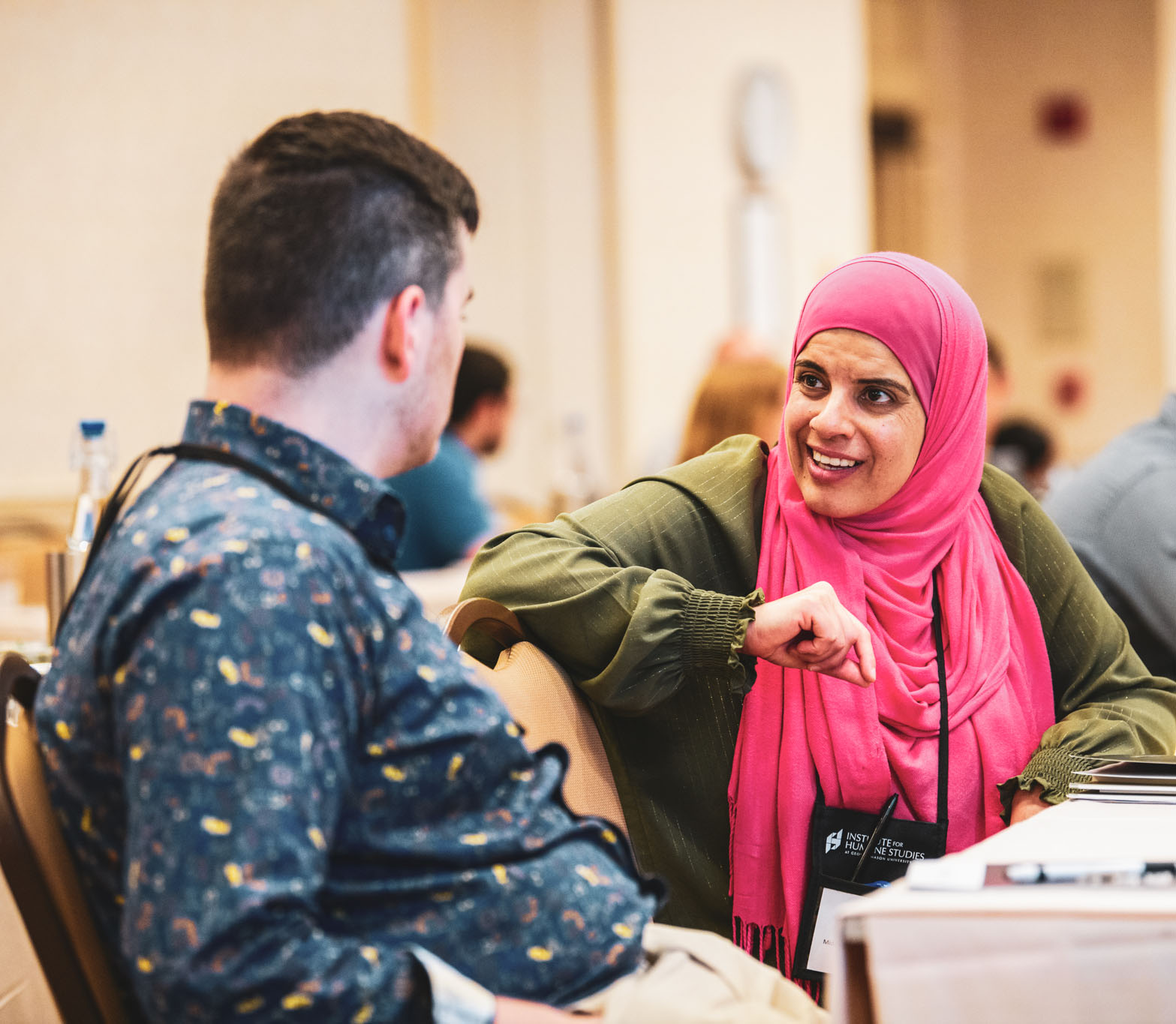Unmissable Events.
Unforgettable Conversations.
Engage in Scholarly Discourse

Research Events
Few academic settings offer the rigor and diverse perspectives of IHS research events. From seminars and symposia to events at major conferences, we gather hundreds of leading scholars and thinkers from around the world to share research, meet new collaborators, and develop the ideas and solutions that advance human freedom and flourishing.
Upcoming Events

Entrepreneurship and Opportunity: A Proposals Workshop
Zoom · Event date: March 25, 2026 · Event time:12:00–5:00 PM ET
Overview
The Institute for Humane Studies is pleased to invite scholars to an online proposals workshop on entrepreneurship and opportunity. IHS welcomes scholars to workshop ideas and receive feedback from other scholars on working proposals on social entrepreneurship and barriers to entrepreneurship. The program will feature opening remarks from Diana Hechavarria.
If your research relates to social entrepreneurship, barriers to entrepreneurship including those affecting underrepresented groups, and research on innovation and entrepreneurial activity that use market-based solutions to address social problems in diverse contexts, we encourage you to apply to participate in this proposals workshop. Please include an abstract or working proposal in your application.
All participants will be expected to submit a working proposal and to read and provide comments or feedback on other participants’ proposals.
This event will take place on March 25, 2026, from 12:00 to 5:00 PM Eastern Time, and will be hosted via Zoom.
Academic Conferences
IHS attends academic conferences across a variety of disciplines. Catch up with IHS staff, learn about our support, and discuss ideas at an IHS-sponsored conference event.
- American Economic Association (AEA)
- Academy of Management (AOM)
- American Philosophical Association-East (APA)
- American Political Science Association (APSA)
- American Sociological Association (ASA)
- Association of Private Enterprise Education (APEE)
- Association of American Law Schools (AALS)
- International Studies Association (ISA)
- Midwest Political Science Association (MPSA)
- Philosophy, Politics, and Economics Society (PPE)
- Public Choice Society (PCS)
- Southern Economic Association (SEA)
- Southern Political Science Association (SPSA)
- Western Economic Association (WEA)